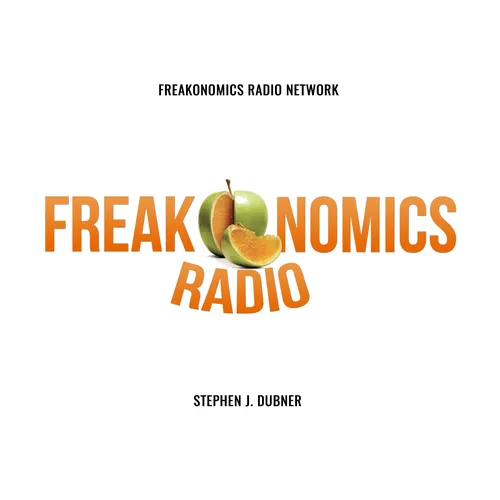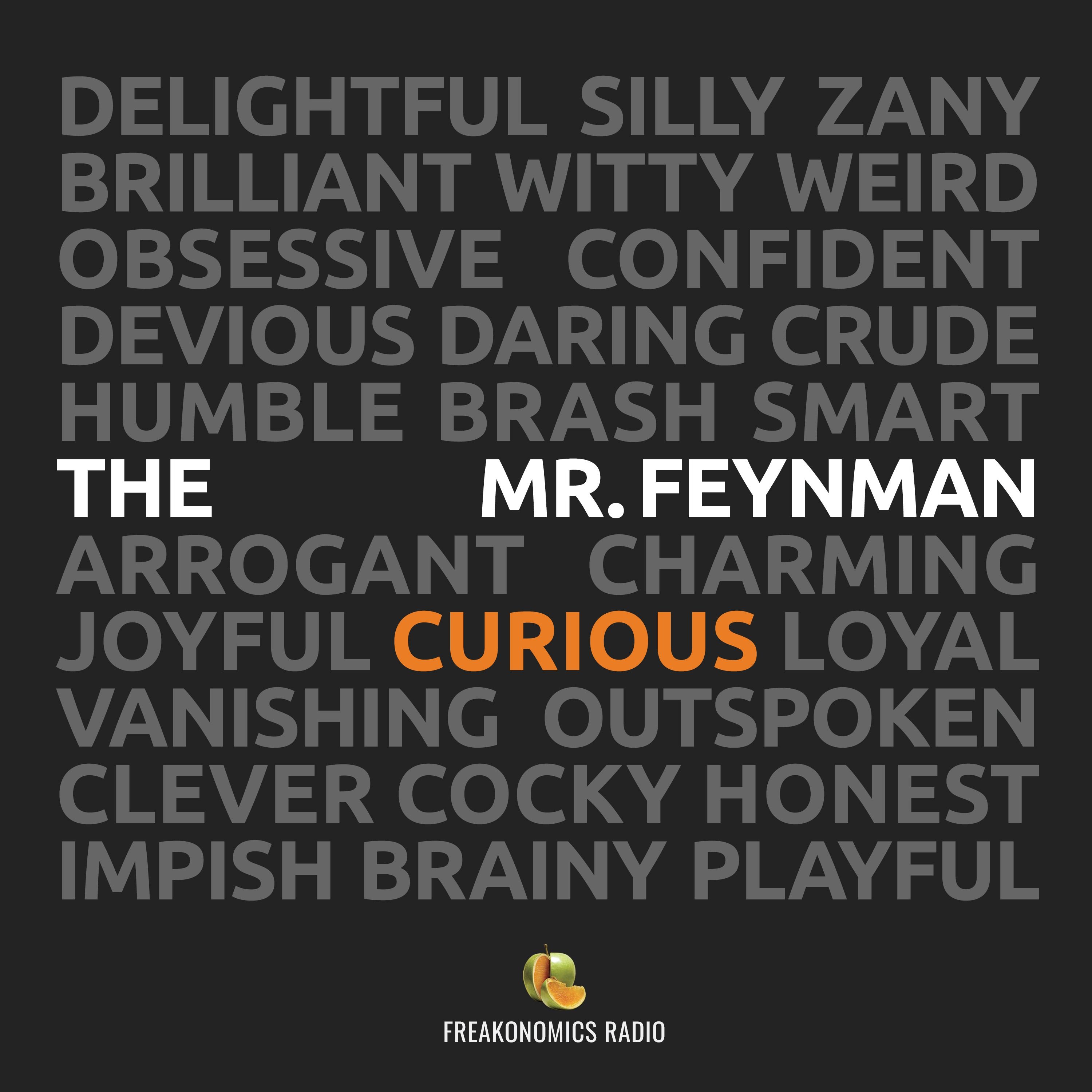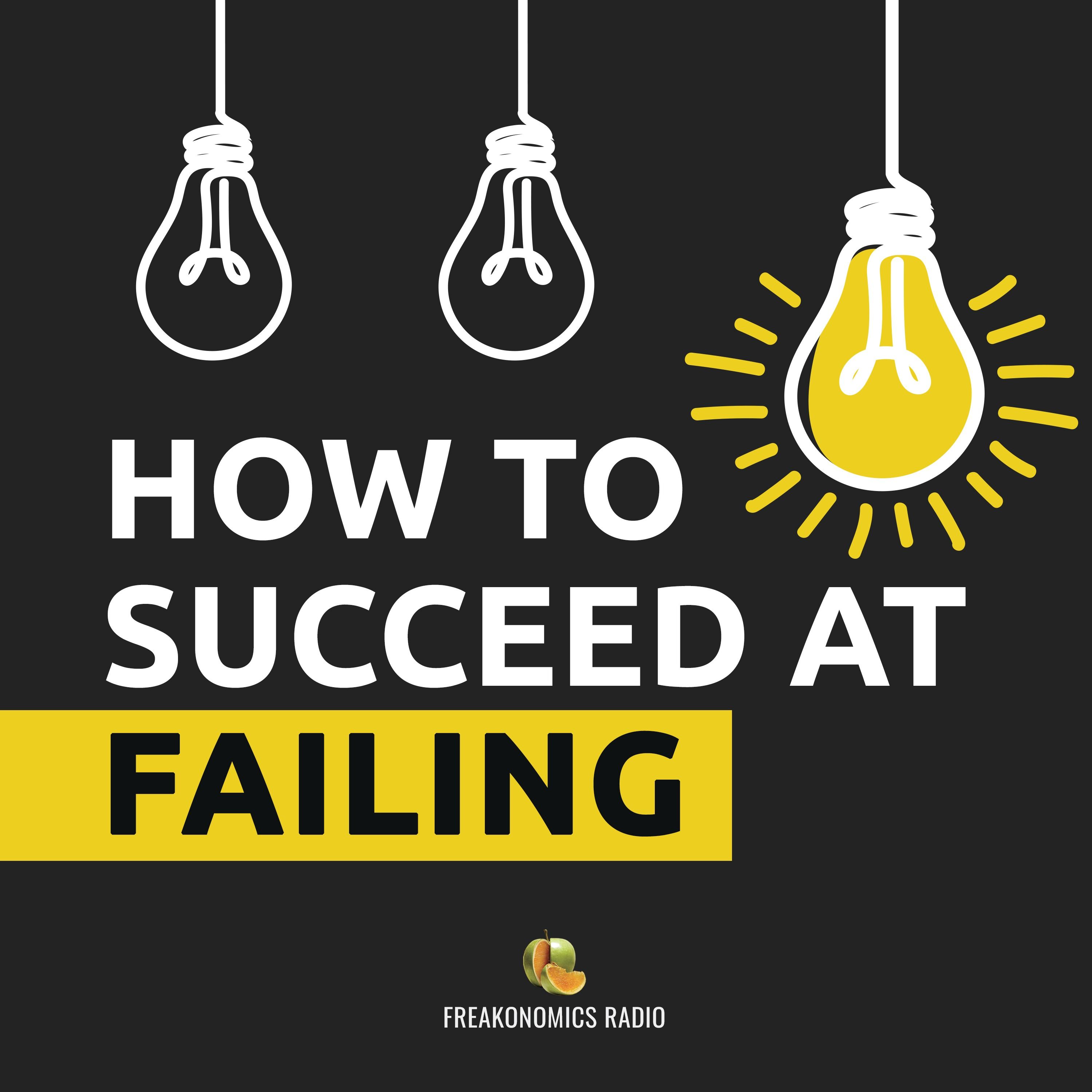
Freakonomics Radio
Freakonomics co-author Stephen J. Dubner uncovers the hidden side of everything. Why is it safer to fly in an airplane than drive a car? How do we decide whom to marry? Why is the media so full of bad news? Also: things you never knew you wanted to know about wolves, bananas, pollution, search engines, and the quirks of human behavior.
To get every show in the Freakonomics Radio Network without ads and a monthly bonus episode of Freakonomics Radio, start a free trial for SiriusXM Podcasts+ on Apple Podcasts or by visiting siriusxm.com/podcastsplus.
- Update frequency
- every 5 days
- Average duration
- 41 minutes
- Episodes
- 857
- Years Active
- 2010 - 2025

The Curious Mr. Feynman
From the Manhattan Project to the Challenger investigation, the physicist Richard Feynman loved to shoot down what he called “lousy ideas.” Today, the world is awash in lousy ideas — so maybe it’s ti…

574. “A Low Moment in Higher Education”
Michael Roth of Wesleyan University doesn’t hang out with other university presidents. He also thinks some of them have failed a basic test of good sense and decency. It’s time for a conversation abo…

5 Psychology Terms You’re Probably Misusing (Replay)
We all like to throw around terms that describe human behavior — “bystander apathy” and “steep learning curve” and “hard-wired.” Most of the time, they don’t actually mean what we think they mean. Bu…

573. Can Academic Fraud Be Stopped?
Probably not — the incentives are too strong. Scholarly publishing is a $28 billion global industry, with misconduct at every level. But a few reformers are gaining ground. (Part 2 of 2)
- SOURCES:

572. Why Is There So Much Fraud in Academia?
Some of the biggest names in behavioral science stand accused of faking their results. Last year, an astonishing 10,000 research papers were retracted. We talk to whistleblowers, reformers, and a co-…

571. Greeting Cards, Pizza Boxes, and Personal Injury Lawyers
In a special episode of The Economics of Everyday Things, host Zachary Crockett explains what millennials do to show they care, how corrugated cardboard keeps your food warm, and why every city has a…

570. Is Gynecology the Best Innovation Ever?
In a special episode of People I (Mostly) Admire, Steve Levitt talks to Cat Bohannon about her new book Eve: How the Female Body Drove 200 Million Years of Human Evolution.
- SOURCE:
- Cat Bohannon, resea…

569. Do You Need Closure?
In a special episode of No Stupid Questions, Angela Duckworth and Mike Maughan talk about unfinished tasks, recurring arguments, and Irish goodbyes.
- SOURCES:
- Roy Baumeister, social psychologist and vi…

568. Why Are People So Mad at Michael Lewis?
Lewis got incredible access to Sam Bankman-Fried, the billionaire behind the spectacular FTX fraud. His book is a bestseller, but some critics say he went too easy on S.B.F. Lewis tells us why the cr…

567. Do the Police Have a Management Problem?
In policing, as in most vocations, the best employees are often promoted into leadership without much training. One economist thinks he can address this problem — and, with it, America’s gun violence…

513. Should Public Transit Be Free? (Update)
It boosts economic opportunity and social mobility. It’s good for the environment. So why do we charge people to use it? The short answer: it’s complicated. Also: We talk to the man who gets half the…

566. Why Is It So Hard (and Expensive) to Build Anything in America?
Most industries have become more productive over time. But not construction! We identify the causes — and possible solutions. (Can you say ... “prefab”?)
RESOURCES:

Extra: Jason Kelce Hates to Lose
Pro footballer and star podcaster Jason Kelce is ubiquitous right now (almost as ubiquitous as his brother and co-host Travis, who's been in the limelight for his relationship with Taylor Swift). Aft…

565. Are Private Equity Firms Plundering the U.S. Economy?
They say they make companies more efficient through savvy management. Critics say they bend the rules to enrich themselves at the expense of consumers and employees. Can they both be right? (Probably…

480. How Much Does Discrimination Hurt the Economy? (Replay)
Evidence from Nazi Germany and 1940’s America (and pretty much everywhere else) shows that discrimination is incredibly costly — to the victims, of course, but also the perpetrators. One modern solut…

564. How to Succeed at Failing, Part 4: Extreme Resiliency
Everyone makes mistakes. How do you learn from them? Lessons from the classroom, the Air Force, and the world’s deadliest infectious disease.
RESOURCES:

563. How to Succeed at Failing, Part 3: Grit vs. Quit
Giving up can be painful. That's why we need to talk about it. Today: stories about glitchy apps, leaky paint cans, broken sculptures — and a quest for the perfect bowl of ramen.
RESOURCES

562. How to Succeed at Failing, Part 2: Life and Death
In medicine, failure can be catastrophic. It can also produce discoveries that save millions of lives. Tales from the front line, the lab, and the I.T. department.
RESOURCES:

561. How to Succeed at Failing, Part 1: The Chain of Events
We tend to think of tragedies as a single terrible moment, rather than the result of multiple bad decisions. Can this pattern be reversed? We try — with stories about wildfires, school shootings, and…

232. A New Nobel Laureate Explains the Gender Pay Gap (Replay)
Claudia Goldin is the newest winner of the Nobel Prize in Economics. We spoke with her in 2016 about why women earn so much less than men — and how it’s not all explained by discrimination.
SOURCES: